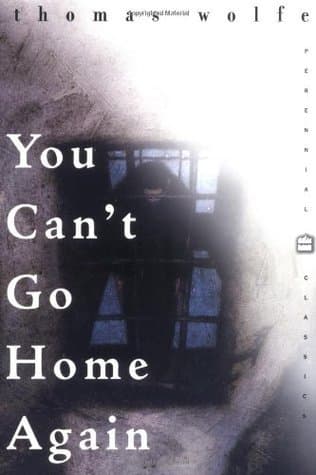
Book Review Summary: You Can't Go Home Again
Introduction
"You Can't Go Home Again" by Thomas Wolfe is a novel that explores the themes of identity, homecoming, and the search for meaning in life. The book follows the journey of George Webber, a young author who returns to his hometown after writing a successful novel. However, he finds himself confronted by the hostility and anger of his family and friends, who feel exposed and betrayed by the truths revealed in his book. As he embarks on a search for his own identity, George travels to New York, Paris, and Berlin, encountering a range of characters and experiences that shape his understanding of the world.
About Thomas Wolfe
Thomas Wolfe was an American writer known for his autobiographical novels, including "Look Homeward, Angel" and "You Can't Go Home Again." Born in Asheville, North Carolina, Wolfe was a prolific writer who produced four lengthy novels and many short stories, dramatic works, and novellas. His writing style was characterized by its originality, poetic prose, and autobiographical elements. Wolfe's works reflect on American culture and mores, offering a unique perspective on the country during his lifetime.
Analysis of Views
-
Powerful storytelling: Readers praise Wolfe's ability to create compelling narratives that capture the essence of human experiences. They appreciate the vivid descriptions and the way he brings characters to life, making their struggles and triumphs relatable.
-
Themes of identity and homecoming: Many readers find the exploration of identity and the search for meaning in the book resonant. They appreciate how Wolfe delves into the complexities of returning home and how it can challenge one's sense of self.
-
Beautiful writing: Wolfe's writing style is widely admired for its poetic quality and ability to evoke emotions. Readers appreciate the way he crafts sentences that are both evocative and thought-provoking.
-
Historical context: The book is set during a period of significant historical events, including the rise of Nazism in Germany and the Great Depression in America. Readers find the historical context enriching and appreciate how it adds depth to the story.
-
Lack of brevity: Some readers find the book to be overly long, with certain sections dragging on unnecessarily. They feel that the abundance of detail and description detracts from the overall narrative flow and make it challenging to maintain interest.
Reasons for Recommendation
-
Powerful storytelling: Readers recommend "You Can't Go Home Again" for its compelling storytelling that captures the complexities of human experiences. The vivid descriptions and well-developed characters make it a rewarding reading experience.
-
Themes of identity and self-discovery: The exploration of identity and the search for meaning resonates with many readers. The book offers insights into the challenges of returning home and how it shapes one's perception of oneself.
-
Beautiful writing: Wolfe's poetic prose is widely praised for its ability to evoke emotions and create a sense of immersion in the story. Readers appreciate his writing style as a significant reason to recommend the book.
Reasons for Not Recommendation
-
Lengthy and slow-paced: Some readers find the book to be overly long, with certain sections dragging on unnecessarily. They feel that the abundance of detail and description detracts from the overall narrative flow, making it challenging to maintain interest.
-
Lack of brevity: Readers who prefer concise storytelling may find "You Can't Go Home Again" to be too wordy and lacking in brevity. They may find it challenging to engage with a book that requires significant investment in time and patience.
Conclusion
"You Can't Go Home Again" by Thomas Wolfe is a novel that explores themes of identity, homecoming, and self-discovery through a compelling narrative. While some readers appreciate its powerful storytelling and evocative writing style, others find it lengthy and slow-paced. Overall, readers recommend the book for its exploration of complex human experiences and its ability to evoke emotions through beautiful prose. However, those seeking concise storytelling may find it challenging to engage with this 704-page tome.